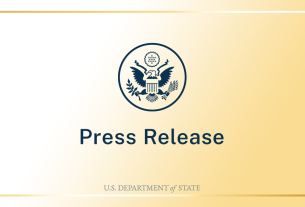I’ve been giving back since I was a teen, handing out turkeys at Thanksgiving and handing out toys at toys drives for Christmas. It’s very important to give back as a youth. It’s as simple as helping an old lady across the street or giving up your seat on the bus for someone who is pregnant. –Queen Latifah
“I’ve been giving back since I was a teen, handing out turkeys at Thanksgiving and handing out toys at toys drives for Christmas. It’s very important to give back as a youth. It’s as simple as helping an old lady across the street or giving up your seat on the bus for someone who is pregnant.”
Queen Latifah
This past Saturday afternoon I walked over to Shaare Zedek Medical Center to visit a relative. After speaking with him and his wife I was blown away by the amount of kindness done throughout the hospital, especially before and on Shabbat. From the individual who puts up a tent and provides gourmet Shabbat meals to hundreds, if not thousands, of patients and families, to teens going around room to room with guitars playing music Friday afternoon, to an organization that will dispatch volunteers to visit the sick who are alone in the hospital, it’s truly inspirational. Obviously, these examples are just a drop in the bucket of other acts of kindness that go on in the hospital.
Recently I spoke to someone who is involved in the charity field. He works with prosperous individuals setting up charitable funds. More than once he told me that he has spoken to individuals who have net worth in the eight to nine digit area, who have never thought about giving. I was totally shocked when he told me this.
Shavuot and charity
Shavuot is upon us, and I’m sure regular readers of this column will want to know if I decided on cheesecake or my diet. My diet it is! While dairy foods take front and center, the common reason given for celebrating the holiday is that it’s the day we received the Torah. The problem is that nowhere in the Torah does it actually say that.
Rav Moshe Lichtenstein writes, “If it is not Matan Torah [giving of the Law] and the historical Shavuot that are the motivating factor of the holiday, the alternative that presents itself is the agricultural factor – Shavuot celebrates the bounty of the harvest and is therefore known as festival of the first fruits. The holiday’s essence is expressed and realized by the two loaves offering from the new wheat that is brought to the Temple on Shavuot morning.
The Ramban (Lev. 23:15) points out that the Torah does not tell us to bring the two loaves on Shavuot; rather, it states that on the day that they are brought, the holiday of Shavuot should be proclaimed: “And you shall proclaim on this very day [in which the sacrifice was brought] a holy day…” (Lev. 23:21). This is due to the fact, explains the Ramban, that the festival itself is generated by the first fruits whose role is not that of a sacrifice brought on a holiday, but rather the reason for the entire festival.”
As I have quoted many times regarding bringing of the first fruits, Rabbi Berel Wein writes, “Saying thank you is one of the basic courtesies of human interaction. Though elementary and straightforward, it is often forgotten or neglected. In saying thank you, we are acknowledging that we are dependent upon the goodness and consideration of others and that we are not completely in control over events and even our own decisions in life.”
Rabbi Wein continues, “There is no question that the farmer invested a great deal of effort, sweat and toil in bringing his crops to fruition. Because of this effort and the investment on the part of the farmer, there is a temptation that he will view these new fruits as an entitlement. For after all, he was the one who devoted the time and effort necessary to produce them. There is a danger that he will forget that there really are no entitlements in life and that one has to say thank you for everything that is achieved, though ostensibly we have labored to achieve this much desired goal. Rather, it is incumbent upon the farmer to thank his Creator for the land and the natural miracles that occurred daily in the production of food, grain and fruit.”
You may be a great businessman, entrepreneur or computer programmer, but internalize the lesson of bringing the first fruits. It’s not all you. Give thanks for being so fortunate that you hit the financial jackpot. Pay it forward. That means when someone does something for you, instead of paying that person back directly, you pass it on to another person instead.
Try and fund or create projects that are near and dear to your heart. They can take giving charity to the next level. This will of course bring tremendous meaning for the rest of their lives. Those who haven’t hit the financial jackpot still give. You can for sure find local, small projects that you can fund individually for a few hundred or thousand shekels. You don’t have to be rich to make a meaningful impact in someone’s life.
Especially now when there is a breach in society, let’s take the lesson of the first fruits and each do our own part in creating a better and more giving society, and that will hopefully help bring us all back together.
Chag sameach.
The information contained in this article reflects the opinion of the author and not necessarily the opinion of Portfolio Resources Group, Inc. or its affiliates.
Aaron Katsman is author of Retirement GPS: How to Navigate Your Way to A Secure Financial Future with Global Investing. (www.prginc.net). [email protected]



